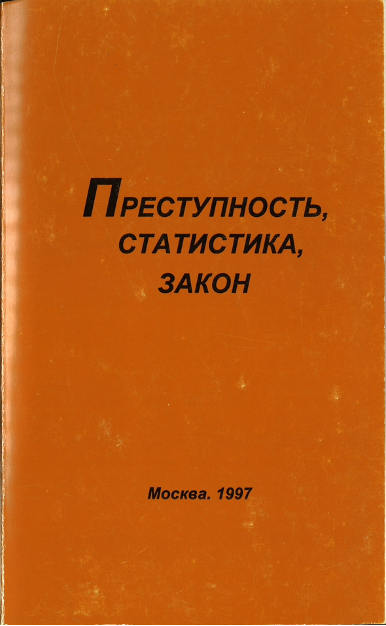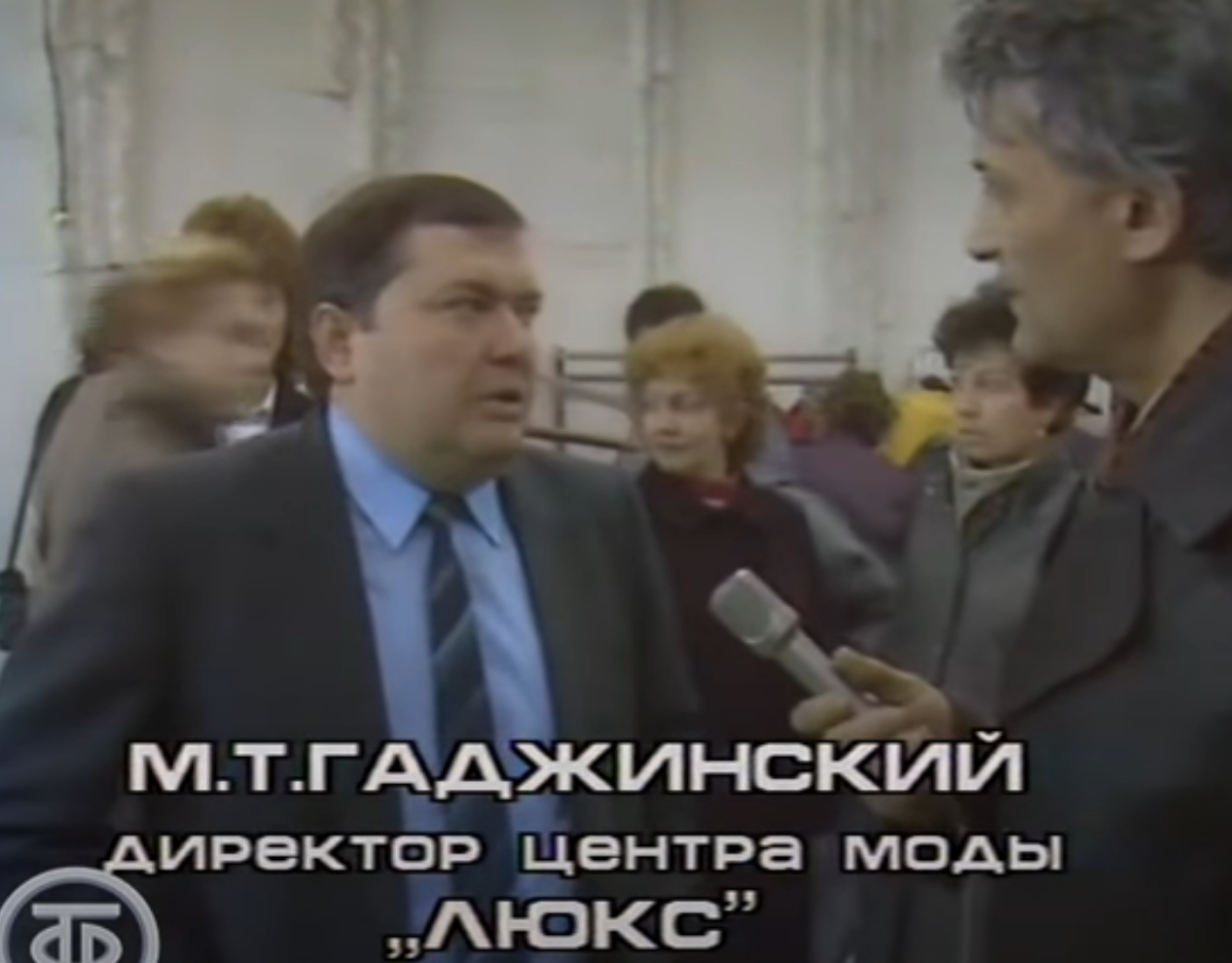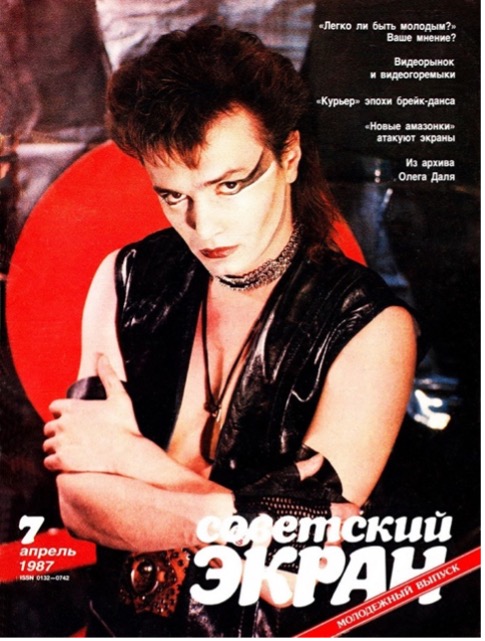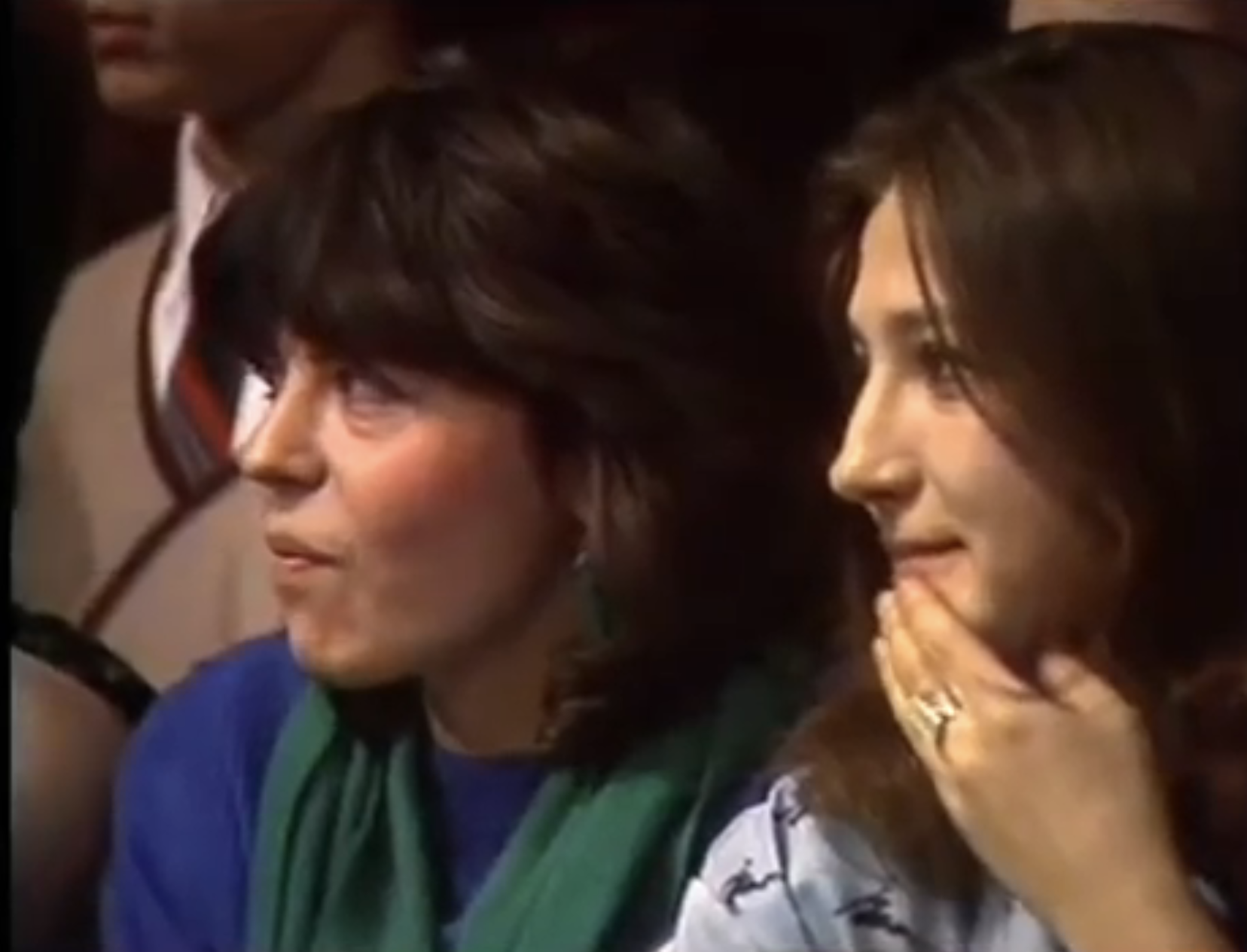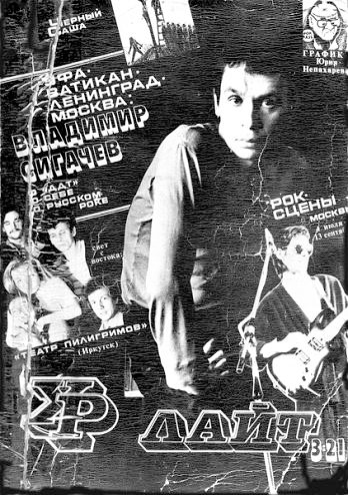Explore: Year » 1987
Russian Crime Statistics, 1980-1996
Nothing epitomized the everyday experience of the urban Russian 1990s like crime. As this first comprehensive statistical study of the 1990s demonstrates, crime was just as bad as everyone had anecdotally experienced. The numbers also reveal some unexpected trends.
Putting the “Spotlight” on an experimental three-hour line for Soviet luxury clothes
“Prozhektor perestroiki” (Perestroika's Spotlight), a glasnost-era televised investigative journalism project, seeks to uncover the causes of a three-hour line for luxury clothes at the recently opened Luxe Fashion Center, which come down to intractable issues of supply and demand in the USSR.
“Dictatorship of Conscience”
A glasnost-era play by Mikhail Shatrov (1932-2010) that opened, without the cuts censors had previously requested, at the Lenin Komsomol Theater in Moscow in February 1986.
"Sovetskii ekran" with Konstantin Kinchev on the cover
Popular film magazines like Soviet Screen (Sovetskii ekran) were instrumental in establishing rock musicians as cultural icons. Volume 7, from 1987, places Konstantin Kinchev (1958-), frontman of the Leningrad band Alisa, on the cover of its “youth issue” (molodezhnyi vypusk) in an effort to promote Valerii Ogorodnikov’s film The Burglar (Vzlomshchik, 1987), in which Kinchev plays the lead role.
“Musical Ring” with guest star Sergei Kuryokhin, 1987
This 1987 episode of Musical Ring captures late-Soviet television's attempt to integrate avant-garde musician and professional trickster Sergei Kuryokhin (1954-1996) into mainstream discourse, simultaneously showcasing the program's role in legitimizing experimental music during perestroika.
Urlait Music Journal (Samizdat) 1985-1992 (Draft)
Moscow's samizdat music journal, which followed in the footsteps of Lenigrad's Roksi while forging a new journalistic style. The journal positioned itself to in many ways reject the Leningrad scene. Despite Moscow-based bands generally leaning towards a more avant-garde, art-rock aesthetic, Urlait made a point to promote so-called "national rock." According to Urlait's founder I. Smirnov, bands like DDT, DK, and Oblachnyi Krai (Yuri Loza) were said to be "oriented towards national problems, in opposition to estrada and the confluence of Western and domestic cultural traditions."
View Artifact
